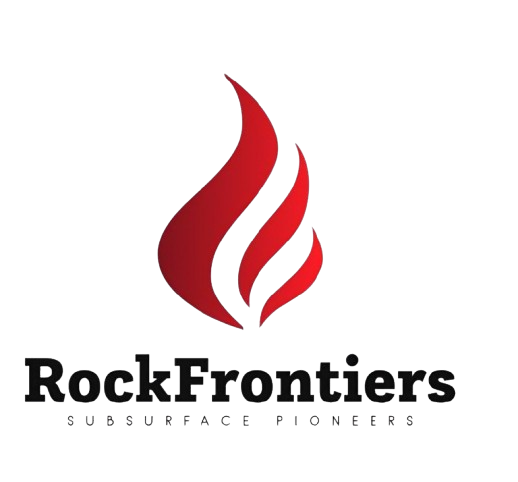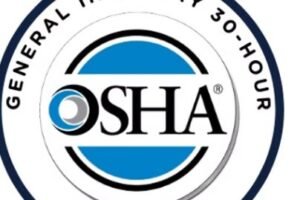Waterflooding and Secondary Recovery Design
Course Overview: This course provides a comprehensive understanding of waterflooding as a secondary recovery mechanism. It covers displacement theory, sweep efficiency, pattern design, injectivity issues, performance monitoring, and optimization methods, with practical sessions using case studies and simulation tools. 📅 …
Overview
Course Overview:
This course provides a comprehensive understanding of waterflooding as a secondary recovery mechanism. It covers displacement theory, sweep efficiency, pattern design, injectivity issues, performance monitoring, and optimization methods, with practical sessions using case studies and simulation tools.
📅 Day 1: Fundamentals of Waterflooding
-
09:00–09:45 – Introduction to secondary recovery methods
-
09:45–10:30 – Waterflooding objectives and key mechanisms
-
10:30–10:45 – ☕ Coffee Break
-
10:45–11:30 – Immiscible displacement theory: frontal advance model
-
11:30–12:15 – Mobility ratio and its impact on sweep
-
12:15–13:15 – 🍽️ Lunch Break
-
13:15–14:00 – Volumetric calculations and waterflood potential
-
14:00–14:45 – Practical: calculate recovery factor and pattern volume
-
14:45–15:00 – Recap and Q&A
📅 Day 2: Waterflood Pattern Design
-
09:00–09:45 – Areal sweep efficiency and pattern types
-
09:45–10:30 – 5-spot, 7-spot, inverted 9-spot, and line drive
-
10:30–10:45 – ☕ Coffee Break
-
10:45–11:30 – Pattern spacing and well placement strategy
-
11:30–12:15 – Reservoir heterogeneity and pattern modification
-
12:15–13:15 – 🍽️ Lunch Break
-
13:15–14:00 – Gravity segregation and vertical sweep
-
14:00–14:45 – Hands-on: pattern layout on field map
-
14:45–15:00 – Recap and Q&A
📅 Day 3: Injection Management and Performance Prediction
-
09:00–09:45 – Injection rate design and voidage replacement
-
09:45–10:30 – Water quality, compatibility, and filtration
-
10:30–10:45 – ☕ Coffee Break
-
10:45–11:30 – Injection profiles and conformance issues
-
11:30–12:15 – Analytical prediction methods (Craig-Geffen-Morse)
-
12:15–13:15 – 🍽️ Lunch Break
-
13:15–14:00 – Use of simulation in injection optimization
-
14:00–14:45 – Hands-on: injectivity and pattern balancing
-
14:45–15:00 – Recap and Q&A
📅 Day 4: Waterflood Surveillance and Optimization
-
09:00–09:45 – Flood monitoring techniques: PR plots, Hall plots
-
09:45–10:30 – Pressure transient and interference tests
-
10:30–10:45 – ☕ Coffee Break
-
10:45–11:30 – Identifying and correcting poor sweep areas
-
11:30–12:15 – Tracer tests and water front tracking
-
12:15–13:15 – 🍽️ Lunch Break
-
13:15–14:00 – Use of software tools for performance tracking
-
14:00–14:45 – Group exercise: analyze flood performance dataset
-
14:45–15:00 – Recap and Q&A
📅 Day 5: Case Studies and Field Development Planning
-
09:00–09:45 – Case study 1: mature field waterflood revival
-
09:45–10:30 – Case study 2: offshore waterflood optimization
-
10:30–10:45 – ☕ Coffee Break
-
10:45–11:30 – Integration with reservoir simulation models
-
11:30–12:15 – Economics of waterflooding
-
12:15–13:15 – 🍽️ Lunch Break
-
13:15–14:00 – Team activity: design a basic waterflood strategy
-
14:00–14:45 – Presentation and peer review
-
14:45–15:00 – Wrap-up and certification
Target audiences
- Reservoir Engineers, Geologists
You May Like
📘 Underbalanced Drilling (UBD) Techniques and Safety
🎯 Course Description: This intensive 5-day program focuses on Underbalanced Drilling (UBD) – an advanced technique used to drill wells where the hydrostatic pressure of the fluid is intentionally kept below formation pressure. Participants will learn how to implement UBD …
📘 IOSH Managing Safely
🎯 Course Description: A practical, 5-day program designed to help managers and supervisors learn how to manage safety and environmental responsibilities in their teams. Emphasis is placed on identifying risks, measuring performance, and leading safely using internationally recognized good practices. …
📘 IWCF Level 3 Well Control (Surface BOP)
🎯 Course Description: This is an intensive course aimed at drilling / well service personnel needing to gain supervisory competence in well control using surface blow‑out preventers (BOP) under the IWCF standard. It covers theory, hands‑on practice, and assessments for …
Advanced Specialist Petroleum GeoMechanics
📘 Course Description: This elite-level course is tailored for petroleum geomechanics specialists and senior subsurface professionals engaged in complex field development projects. It provides a deep technical dive into stress modeling, anisotropic rock behavior, coupled geomechanical-reservoir simulation, fault/fracture mechanics, and …
📘 OSHA 30‑Hour General Industry Safety and Health
🎯 Course Description: This 5‑day course provides in‐depth knowledge of workplace safety and health in general industry sectors. It covers OSHA regulations, hazard recognition, safety programs, and industry best practices. Participants will gain the expertise needed to maintain a safe …






